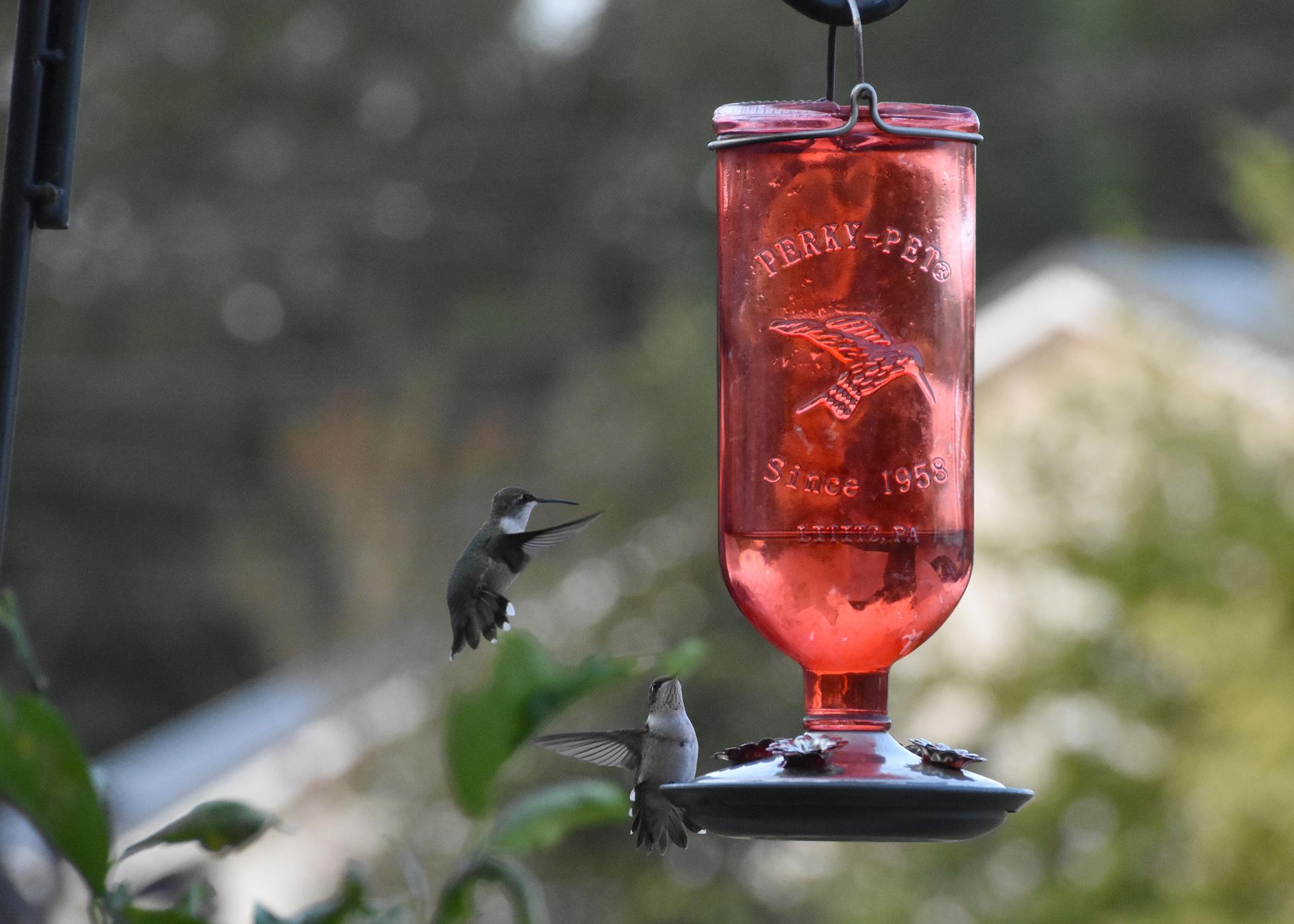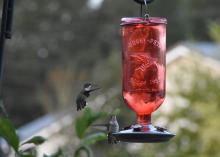Information Possibly Outdated
The information presented on this page was originally released on August 29, 2022. It may not be outdated, but please search our site for more current information. If you plan to quote or reference this information in a publication, please check with the Extension specialist or author before proceeding.
Keep feeders full for fall hummingbird migration
Over the weekend, we had a most welcome visitor return to my home garden and landscape after an absence of several months. Our first hummingbird of the fall season arrived, and this was an indicator of lots of activity in the next few weeks.
I get excited to see the first fall hummingbirds because it means they’re going to start gathering all along the Gulf Coast in preparation for their fall migration.
Earlier this spring, I wrote about great plants you can use to attract hummingbirds to your garden. And while it’s most likely too late for this year, you can use those suggestions as a guide as you plan your 2023 landscape.
So instead of considering great hummingbird garden plants, today I want to share some interesting facts about hummingbirds.
For being so small, hummingbirds have incredible migration patterns.
They literally fly thousands of miles between their overwintering grounds in Mexico and Central America to their breeding grounds throughout North America. Some take the longer land route and follow the coastline of the Gulf of Mexico. It is amazing to realize that others fly nonstop straight across the Gulf of Mexico.
As I delved deeper into hummingbird facts, I learned that ruby-throated hummingbirds, which are the primary ones that I see, can fly 500 miles nonstop.
Maybe that’s one of the reasons most gardeners are enthralled with hummingbirds and also Monarch butterflies. Such tiny creatures take what seems to be unbelievable journeys when sometimes it’s a chore for me to go to the corner grocery store.
Sugar, as in glucose, is a great food and energy source for these tiny birds as they get ready to head farther south. And do they ever love sugar!
Hummingbirds have a really high metabolism. They beat their wings 50 times a second and have a heart rate of over 1,000 beats a minute. Because of the energy needed to sustain that kind of effort, they can consume twice their body weight every day.
While hummingbirds have the hummer nickname, they don’t actually hum. They do have an unmistakable whirring sound from their wings beating so fast. They also have a high-pitched chatter.
If you haven’t already done so, now is a perfect time to put those hummingbird feeders out.
You can buy ready-mixed feeder solutions, but I think it’s easier to make your own sugar water. The recipe is simple: four parts water to one part pure cane sugar. Do not use honey or brown sugar, as this can make the hummingbirds sick.
Boil this solution and allow it to cool before adding it to the feeders. It’s not uncommon to have to make several batches a week.
So, enjoy the hummingbirds this fall as they get ready to migrate south. You’ll see lots of activity around the feeders for weeks, and then one day, they’ll all be gone. Until next spring.



